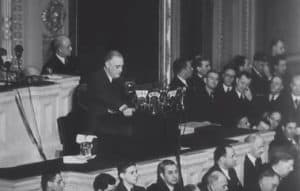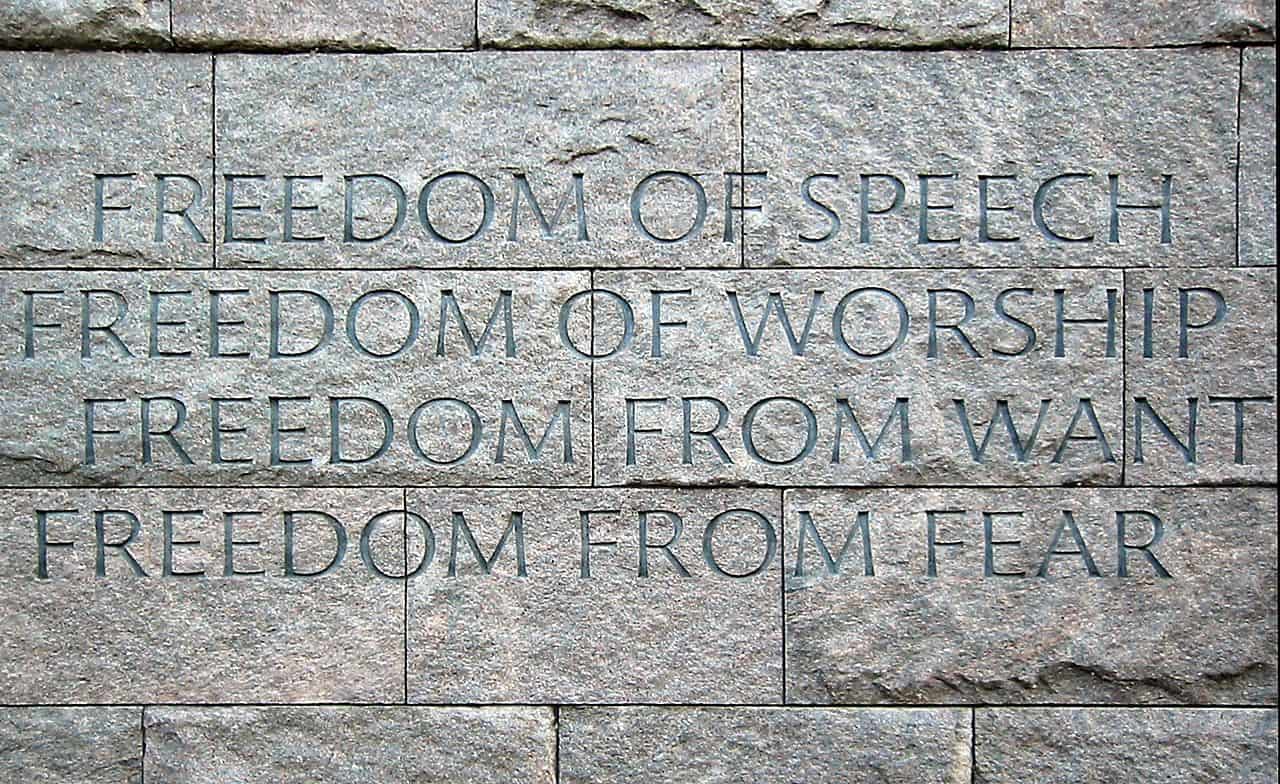An Essential Step in Preserving Authentic Liberty and Natural Marriage in the United States
A free people [claim] their rights as derived from the laws of nature, and not as the gift of their chief magistrate.
—Thomas Jefferson, 1774—
If men through fear, fraud or mistake, should in terms renounce and give up any essential natural right, the eternal law of reason and the great end of society, would absolutely vacate such renunciation; the right to freedom being the gift of God Almighty, it is not in the power of Man to alienate this gift, and voluntarily become a slave.
—Samuel Adams, 1772—
Key point: A critical step in restoring and preserving ordered liberty and avoiding chaos in America will be understanding and returning to America’s Founders’ perspective on rights. Oh, how far we have departed from the ideal they upheld!
Access summaries and links to all the articles in this series here.
Americans’ perspective on personal freedoms—and especially on the nature of rights—has changed drastically since the founding of the United States as a country in 1776 and the drafting of the Constitution in 1787. It is critical we understand how far we’ve drifted. To illustrate the contrast between the Founders’ perspective on rights and that of modern Americans, it’s helpful to examine a portion of a well-known speech by President Franklin Delano Roosevelt.
The “Four Freedoms”
On January 6, 1941, a mere 11 months before Pearl Harbor would be bombed and America would enter World War 2, President Roosevelt gave his State of the Union speech. Later it became known as the “Four Freedoms Speech,” because near the end of his address, Roosevelt upheld “four essential human freedoms”—
-
-
- freedom of speech and expression,
- freedom of religion,
- freedom from want, and
- freedom from fear.
-

The Four Freedoms are noble ideals that have stirred human emotion and encouraged millions of people to sacrifice for others—even people they never had met. We do well, however, to examine the Four Freedoms, which essentially are presented as rights, carefully. Certainly we never would want to hinder free expression or worship of God; nor would we wish want or fear on anyone. We actually may be tempted to “jump on the bandwagon” to affirm all four as attainable. Yet we need to respond to these ideas not just with our hearts, but also with our heads. We need to ask about each one, What does this freedom require on the part of a government and its people, and what will be the effects, both intended and unintended, of efforts to secure it? When we answer honestly, we discover a great deal more than our emotions have told us at the outset. Actually, we discover things contrary to what our emotions likely have said.

The first two freedoms, Freedom of Speech and Expression and Freedom of Worship, are rights guaranteed in the US Constitution. To secure them, government is primarily required to stay out of the way and to allow people to speak freely and practice their religious faith as they see fit. Whenever people hinder or prevent their fellow citizens from exercising their rights of speech and worship, government’s role is to penalize them for violating others’ rights. With regard to the first two freedoms, therefore, government action, generally speaking, is clearly defined and limited.
Qualitatively Different

Upon reflection, it isn’t difficult to see that the third freedom—freedom from want—is fundamentally different from the first two. The difference is qualitative; it is not a difference of degree, but of kind.
While the goal of reducing want was and is laudable, Roosevelt was saying people had a right to be free from want! This assumption gives government a task God never intended it to have. How are people’s needs to be met? According to Scripture, individuals are to work to provide for themselves and their families. Not everyone can; but everyone who can, should. You can take it to the bank: When government becomes engaged in working directly to eliminate want, it almost invariably does so through taxation and redistribution of wealth.
This approach stifles creativity and productivity. It effectively kills citizens’ motivation to work hard and grow the national economy. Why should I work if my hard-earned money will be taken away from me to meet the needs and demands of those who refuse to work? With a motivation to work, however—with the assurance that hard work will be rewarded with pay one can keep and use as he or she sees fit—a scenario unfolds that helps reduce poverty to a far greater extent than any plan relying on redistribution.
Actually, plans to reduce poverty through taxation and redistribution exacerbate the problem. Government is a terrible benefactor! It cannot create wealth but only can take from those who do. When it does so excessively and uses those resources irresponsibly (two things government is quite prone to do) it chips away at workers’ incentive to produce. We need to understand that biblically, it isn’t just work that is to be satisfying, but also the wealth produced by that work. This is not selfishness or greed, but a contentment resulting from efforts expended. Moreover, with wealth so gained, workers are in a position to be generous. They can help those who have legitimate needs. Generosity, you see, also is satisfying and rewarding.

The fourth right is much like the third. To secure freedom from fear, government must actively intervene in the lives and the affairs of its people. Do not misunderstand. Nations clearly have a duty to shore up defenses and to use them to keep their people safe from aggressors inside and outside their borders. In this sense, governments are legitimately engaged in minimizing fear.
Beware, however! Treating this as a right means obligating government in ways that empower it to interfere in people’s lives! Roosevelt spoke at a time when war was on the horizon, but many fears are not related to war. Just how far will government go to meet its citizens’ “right” to live fear-free lives? In business, no one can succeed without taking risks, something that is inherently frightening. So if a government eliminates fear, it eradicates success as well! This is bad enough, but keep in mind we’re talking about more than business. The effort to wipe out fear, especially among a national population, inevitably will become a quest without end.
Negative and Positive Rights
Social and political scientists call FDR’s first two freedoms in his “Four Freedoms” speech negative rights, and the second two freedoms positive rights. This may sound strange, but we need to remember that the terms negative and positive in this context do not mean “bad” and “good.” They mean “restraint on government action” and “requiring government action,” respectively.
Numerous other “freedoms” or “rights” will fit into one of these categories or the other. The Founders believed that authentic liberty thrives in a nation when that nation’s citizenry is guaranteed negative rights. These are the “unalienable” rights of which the Declaration speaks. This is why the Bill of Rights places limits on government! Today, however, Americans view rights differently. Most see rights as entitlements shaped, crafted, and granted by government. As we’ve already implied, this flies in the face of these words from the Declaration of Independence:
We hold these truths to be self-evident, that all men are created equal, that they are endowed by their Creator with certain unalienable Rights, that among these are Life, Liberty and the pursuit of Happiness. — That to secure these rights, Governments are instituted among Men, deriving their just powers from the consent of the governed….

We need to understand that FDR’s speech reflected the nation’s perspective on rights every bit as much as it shaped and molded it. Significantly, hearing the president’s speech and not readily being able to recognize the fundamental difference between the first two freedoms and the last two demonstrates that at that time, the nation already had moved away significantly from some of the principles upon which it was founded.
Today, we Americans have such an entitlement mentality that when we think of rights, we almost exclusively think of them in terms of a “positive rights perspective.”
Unfortunately, government would continue to grow and feed the populace the lie that rights come from government, even though it would not use these same words. Today, we Americans have such an entitlement mentality that when we think of rights, we almost exclusively think of them in terms of a “positive rights perspective.”
Next time, we’ll dive more deeply into this topic to make sure we understand the difference between the two kinds of rights. This is extremely important! We’re talking about the difference between liberty and tyranny. We’ll also begin to “connect the dots” and see how all of this relates to God-given marriage.
Stay tuned!
Part 2 is available here.
Copyright © 2019 by B. Nathaniel Sullivan. All rights reserved.
The content of this post has been adapted from articles in the series “Misinformed and Misled: How a Distorted Perspective on Rights Is Leading America into Tyranny.”
Unless otherwise indicated, Scripture has been taken from the New King James Version®. Copyright © 1982 by Thomas Nelson, Inc. Used by permission. All rights reserved.
top image: Engraving of the Four Freedoms at the Franklin Delano Roosevelt Memorial in Washington, D.C.


Excellent, and needed article.
Great job!
Thanks, Oscar! You continually inspire me! I hope all is well with you!
Bev Sullivan
So very thankful for Word Foundations and the much needed work that’s being done.
Thank you, Daniel, for your kind words and encouragement!
B. Nathaniel Sullivan